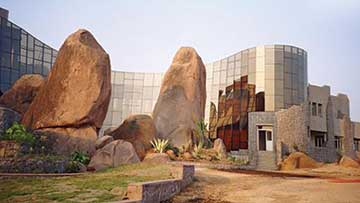Padmini B Patell
When we try to pick out anything by itself, we find it hitched to everything else in the Universe – John Muir
 It is often asked why rocks are important and if doing away with them will make any difference at all to man. Although the rock-man equation is not apparent up front, rocks have a significant place in the larger scheme of things. Not only do they play a crucial ecological role, they also are an irreplaceable geographical landform besides being a fascinating natural asset. Importantly, rocks are formed over millions of years and once destroyed their loss is irreplaceable. They are simply wiped out forever, unlike trees for instance that can be grown back with some effort and time.
It is often asked why rocks are important and if doing away with them will make any difference at all to man. Although the rock-man equation is not apparent up front, rocks have a significant place in the larger scheme of things. Not only do they play a crucial ecological role, they also are an irreplaceable geographical landform besides being a fascinating natural asset. Importantly, rocks are formed over millions of years and once destroyed their loss is irreplaceable. They are simply wiped out forever, unlike trees for instance that can be grown back with some effort and time.
Rocks are intricately woven into the ecological fabric and have a far-reaching environmental impact. They provide a comprehensive abiotic system that sustains the equilibrium of the ecosystem in several ways.
Soil basically results from the breakdown of parent rock through the weathering processes, i.e., physical and chemical weathering lead to the decomposition and disintegration of rock into soil. Hence, the nature of the parent rock determines the soil type and the mineral composition directly determines soil nutrients or soil fertility.
Rocks have in-built cracks and grooves which work as aquifers, providing natural storage of clean water, directly influencing the water table of an area. They are responsible for the formation of lakes and other water bodies. The climate too is affected by large rocky areas as they alter the flow of air and respond differently to solar radiation. In rocky environments, especially mountainous regions, precipitation is enhanced. Moisture bearing winds release precipitation on the windward side while the leeward side falls in the ‘rain-shadow’ area.
The author is a part time freelance writer by accident, a full time home maker by preference, and an all-time rock enthusiast by passion! She can be reached at minipad@sify.com.
